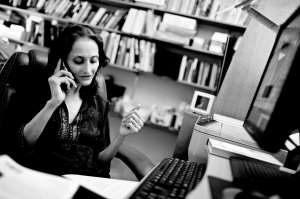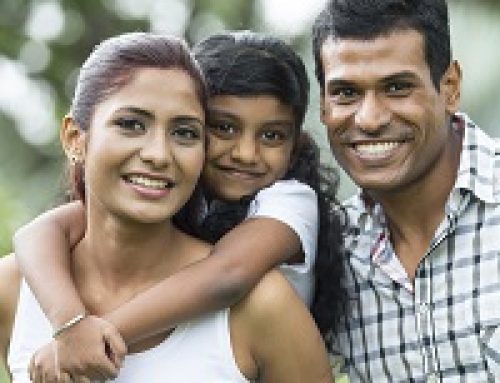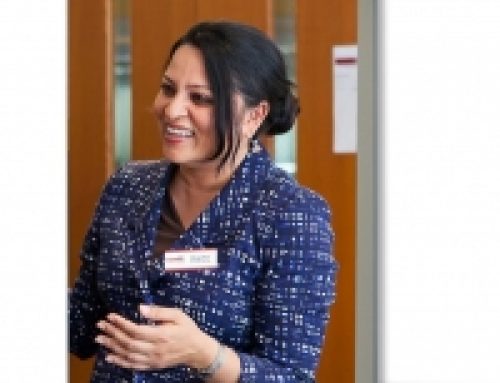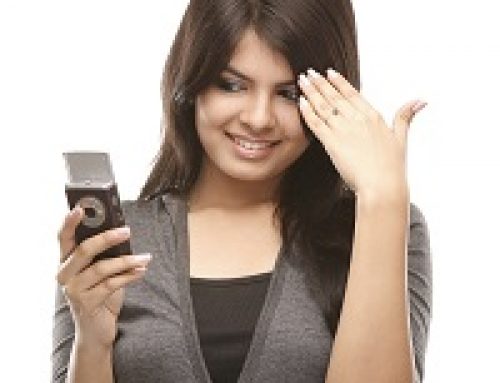Chicago Tribune – Young South Asians, Meet Your Match
Matchmaker helps to navigate unique cultural challenges
By Noreen S. Ahmed-Ullah
CHICAGO TRIBUNE REPORTER
Jasbina Ahluwalia got a master’s degree in philosophy, went to law school, and then seven years into a successful law career, she changed course — to become a professional matchmaker.
If you’re envisioning a meddlesome aunt or that nightmarish matchmaker in “Mulan,” think again: Ahluwalia is 39, a mom to 1-year old twins and someone who prefers sweats to tailored suits.
It was her own search for a spouse in her mid-30s that led Ahluwalia to realize there was a need for a professional matchmaking service for South Asians. Ahluwalia discovered that a generation of Indian youth were definitely not interested in the arranged marriage path of their parents but needed help as they embarked on an uncharted trek — one that had them dating like their American peers but with someone guiding them toward an eventual match.
So Ahluwalia stepped in with her Intersections Matchmaking agency, singles mixers, a blog radio program and an army of matchmakers — she calls them scouts — spread across the country to keep their eyes wide open for that perfect pairing.
“I’m in my element doing this,” she says at her home office in Oak Brook. “It’s helping people navigate their choices and encouraging them to really do a self examination of their lives. I’m trying to say, ‘Folks, this is an important decision. Let’s approach this with our hearts and minds both.’ ”
Ahluwalia says many young South Asians, driven to succeed in their professional careers, have overlooked this part of their lives. Some may still leave it up to their parents and family friends to find them a spouse.
“Before the Internet, it was all about the aunties and the uncles. They were the professional matchmakers, so to speak,” says Rohan Dabreo, an Indian-American who does online and print ads for India Tribune, a South Asian publication in Chicago that runs weekly matrimonial ads (often soliciting candidates with “fair skin” and doctors only, please).
But a growing number of South Asians are opting for a more personal approach to finding a mate.
Take Flora Brahmbhatt, 34, for example. She was born in India, came to the U.S. when she was 5 years old and grew up in Buffalo Grove. Brahmbhatt, who now lives in the Bay Area, says she has never been interested in the arranged-marriage track. She wants to choose her husband.
“I had done Internet dating, family setups. I gave it my all, so how is it that I’m still single?” she asked. “I needed a third-party opinion on who I am, what I’m communicating or not communicating to a potential significant other. I needed a career sort of approach.”
Many young South Asians have little dating experience because parents discouraged it earlier because of religious or cultural beliefs. They fit into what Ahluwalia calls the “Don’t date, don’t date — OK, get married” grouping. Ahluwalia trains them in dating do’s and don’ts and as in Brahmbhatt’s case, what to project in that first meeting.
Others may have dated quietly. Ahluwalia helps them realize what they’ve learned from previous relationships.
For those who are actively searching Internet matchmaking sites like shaadi.com or bharatmatrimony.com, the agency helps with the online profiles.
It all begins though with a $375 pre-consultation. Ahluwalia has done hundreds of these in-depth, soul-searching interviews, probing and prodding clients into thinking about what they “truly” value in themselves and what they want out of a partner. Do they have a religious preference? Are they open to marrying non-South Asians? (Most of her clients are Indians — Hindus, Sikhs, Muslims and some Buddhists.)
Sometimes those interviews leave the matchmaker hitting up against some hardset ideals like a 5-foot-2 woman looking for a tall Indian — not impossible, but not common either — or a pudgy male candidate quite confident he can snare a woman who is physically fit.
“I tell them, ‘If you want someone who is fit, it would make sense for you to also make an effort in that regard,’ ” says Ahluwalia. “‘You need to be the person that you are seeking.”
That’s where that degree in philosophy kicks in.
Brahmbhatt says Ahluwalia is her dating coach. She made her realize that maybe she ought to mention on dates how she loves to watch football, or notice when dating someone is going nowhere.
She says though that explaining to relatives why she’s opting for a nonarranged marriage path can be frustrating.
“In many ways, it’s like ‘My Big Fat Greek Wedding,’ ” Brahmbhatt said. “It’s like a village. My being single is not relevant just to me. It’s relevant to my parents and my extended family. They don’t understand dating. You go on a date and they’re like, ‘Do you like him? Does that mean you’re getting married?’ ”
After the initial consultation, which includes a background check, clients can be selected into a tiny pool of 30 for whom Ahluwalia and her scouts then go all-out — using a headhunter model of sorts. They place personal ads. Scouts canvass their own personal and professional
circles. Introductions are made. Dates are evaluated and discussed. Here the price tag can get hefty: Prices range from $5,000 into the tens of thousands of dollars.
Ahluwalia’s own experiences growing up in America as the child of Indian-born parents helps her dispense some sage advice to young clients who feel torn between what they want in a spouse and what their parents see as the ideal match. Many South Asians are cognizant of disappointing their parents and not fulfilling expectations.
“With family, they think they know what’s best for you, and their methods of screening can be bizarre,” says a 37-year-old Chicagoan who is a client of Ahluwalia’s but prefers to remain anonymous.
She says a partner’s family background, religion, ethnicity may be more important for parents than for an American-born South Asian. “My dad, what he thinks is the right person is incongruent with what I think.”
In this client’s case, Ahluwalia is helping her be more open to other options.
“She can encourage you to look at someone who you may not have considered,” she said. “It’s an unbiased and thoughtful approach. You’re trusting someone who is not as emotionally involved as you but is invested to find someone for you.”
In some cases, encouraging clients to look at new options involves opening American-born South Asians to the possibility of marrying Indian-born spouses. Thanks to a wave of Indians who have scored well-paying IT jobs in the U.S. over the last several years, a new pool of qualified South Asians has entered the marriage market.
Dabreo, the interactive marketing manager for India Tribune who at times acts informally as a scout for Ahluwalia, says without her matchmaking company an Indian immigrant may be vice president of a company making upward of $500,000 but not know where to begin to find an Indian-American woman.
“(Ahluwalia) is your chaperone, your ‘wing woman’ as you go into unknown territory,” he said. “You don’t want to meet the wrong person. You want someone who respects the cultural or traditional thinking and morals that you’ve brought from India or Pakistan.”
Eventually opting for an Indian immigrant rather than an American-born Indian or a non-Indian was a choice Ahluwalia also made. After dating Caucasians and Indian-Americans, she settled for a private equity investor from the Bay Area who had emigrated from India 20 years ago.
“When I was younger, I never would have thought of going to India and getting married or marrying someone who had just come over,” she says. “But today if you go to Delhi or Mumbai, the lifestyle is not that different from here. Some second-generation South Asians (she identifies them as being born in the U.S.) think first-generation Indians (Indian-born immigrants) are very traditional. I flip that on its head and say, ‘Many first-generation Indians left home and were more independent minded than second-generation Indians who stayed in the country they were born in.’ ”
And that’s where that law degree comes in handy.
Instead of a cupid’s arrow, Ahluwalia uses the skills she acquired as an attorney to deal with clients whose resumes can be intimidating. She takes their unwavering ideals, pokes holes in their argument and uses compelling logic to win them over.
In other words, she helps them reconsider once-closed options and finds them love where they may not have thought possible.
_____
Dating FAQs
Here’s are some of the questions the matchmaker asks her clients:
- What have been your obstacles in finding a life partner?
- What would the person who knows you best appreciate the least about you?
- Tell me the worst advice you’ve ever received.
- Tell me the best advice you’ve ever received.
- Who has been the most influential person in your life? Why?
_____
nahmed@tribune.com (This article was originally published at Chicago Tribune)
_____
What do you think?
Would you like to add to the insights shared in the Chicago Tribune Jasbina Ahluwalia Interview? Share your thoughts in the comments below.
_____






